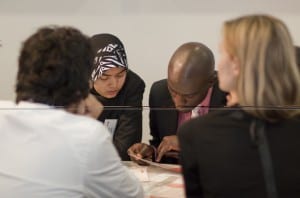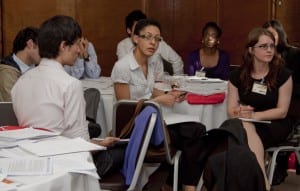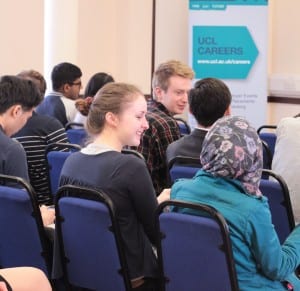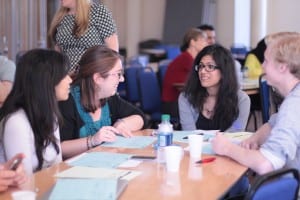For the attention of logical thinkers!
By UCL Careers, on 8 October 2014
Logical algorithms associated with science and developed in the effort to make sense of the world dominate your thinking patterns. You are studying fascinating ideas, structured theories and new ways to apply old ideas. There is an Engineering Fair on and you probably don’t really feel the pull to go and find out what is going on. The comfort of your course and academic work is too cosy for you.
The Engineering Fair is on because employers are looking for people like you. The world needs logical thinkers and problem solvers. They want to use your clear thinking to achieve results, your objective mind to highlight causes and effects, or utilise your lateral thinking to bring valuable perspectives to light.
The options for you are endless. You can work in technology, management, retail, law and financial professions. In addition, many other specialist professions unrelated to your subject will be keen to harness your skills and train you. With so many choices, you have a challenge: which one to choose!
Like many other decisions you have to make, such as buying a mobile phone or finding a place to live, the more investment of time and grey cells that you spend researching, analysing, reading and checking things out the more informed you will be to choose the right career option for you. The Engineering Fair is the kind of opportunity that you can utilise depending on your time investment and preparation.
Make it your business to know their business and its relation to you.
So don’t just come browsing mindlessly.
- Research the companies’ products, services and the overall industry.
- Look into the roles the companies offer and consider/ predict the roles that they are going to need in the future.
- Look at their industry and think of questions to ask to enrich your base knowledge.
- For your career planning, think of roles that you might be interested in, and then identify why you are interested and what goals you are trying to fulfil.
- Challenge yourself by asking difficult questions about how you will shape your future.
- Make notes of your thoughts and reflect on which ones can be used for discussions at the Engineering Fair.
Use your talent to set targets to achieve at the fair in order to utilise this opportunity and draft a strategy to get the best out of the fair.
You will be surprised when you finish your studies; networking opportunities disappear and will not be so readily accessible. You may wish you had made the most of these opportunities!
The UCL Careers Engineering fair on Monday 13th October is kindly sponsored by Targetjobs Engineering.
 Close
Close











